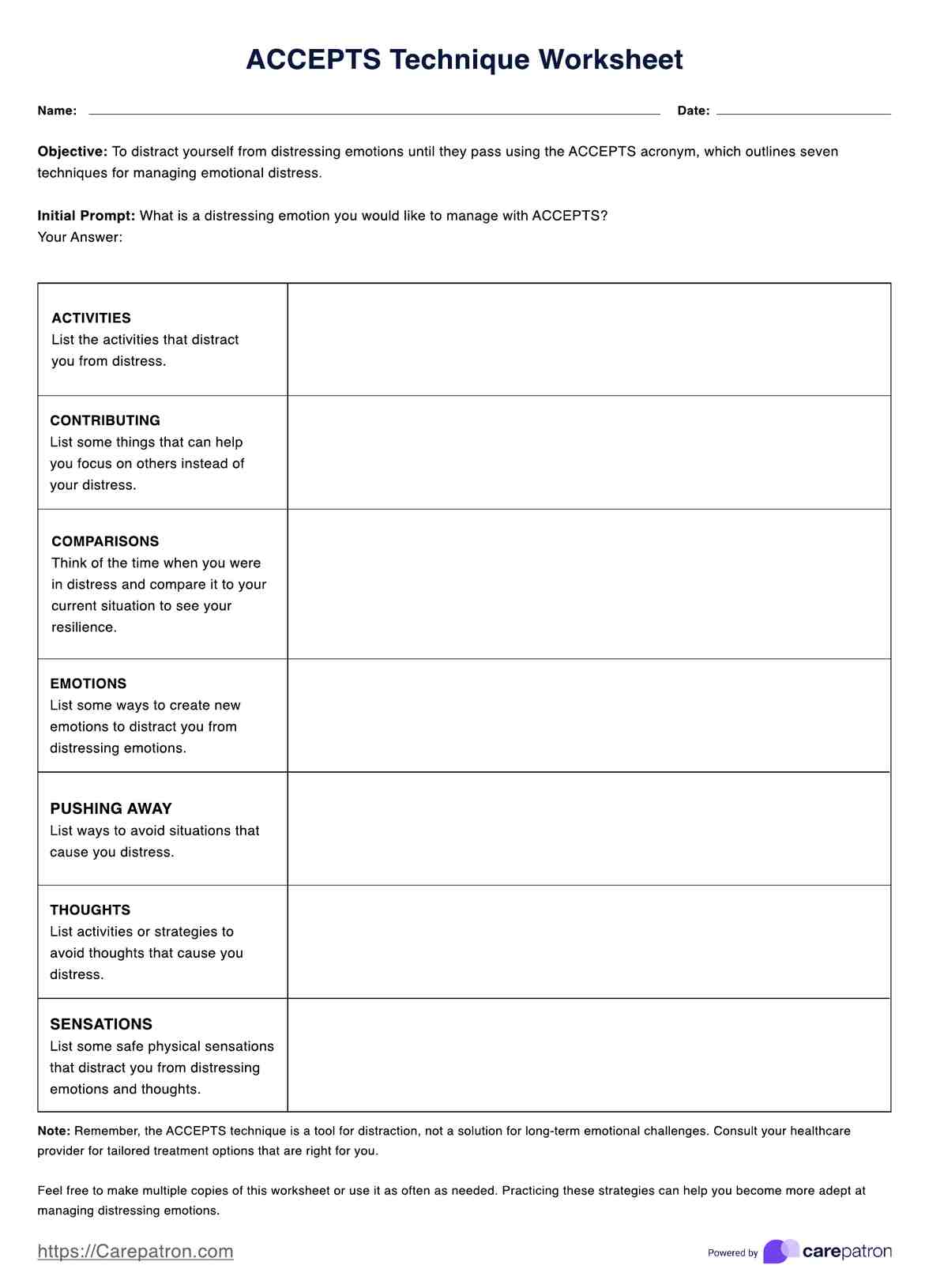DBT Accepts Skills Lists are typically used by healthcare professionals such as psychologists, psychiatrists, and therapists in their practice. Individuals can also use them for personal self-care.

DBT Accepts Skills Lists
Discover the DBT Accepts Skills List, a proven tool for managing distressing emotions. Ideal for therapists, individuals, and anyone seeking emotional balance.
DBT Accepts Skills Lists Template
Commonly asked questions
DBT Accepts Skills Lists are used whenever an individual is experiencing distressing emotions and needs strategies to manage them. This can be during a stressful situation, a difficult conversation, or when emotions feel overwhelming.
DBT Accepts Skills Lists are used by implementing the strategies outlined in the list during distress. This can involve engaging in distracting activities, contributing to others, making comparisons, eliciting opposite emotions, and pushing away distress.
EHR and practice management software
Get started for free
*No credit card required
Free
$0/usd
Unlimited clients
Telehealth
1GB of storage
Client portal text
Automated billing and online payments











